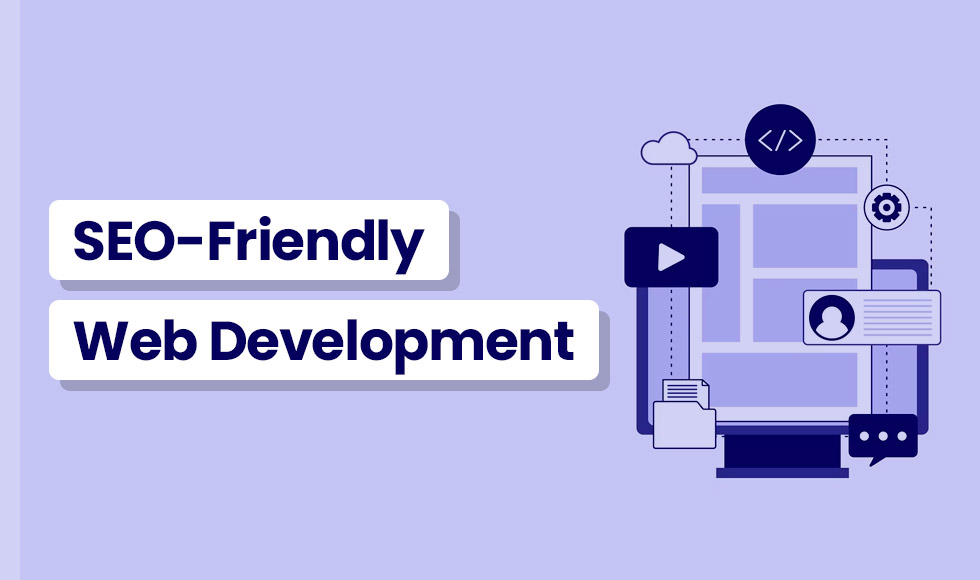SEO-Friendly Web Development: Best Practices for 2024
In the ever-evolving world of digital marketing, having a well-designed website is crucial for online success. However, a website alone isn’t enough to drive traffic and improve visibility. SEO (Search Engine Optimization) plays a vital role in making sure your site ranks high in search engine results, which ultimately leads to better traffic and conversions. For businesses in Kerala, especially those seeking the best SEO services in Cochin, understanding how to integrate SEO into web development is more critical than ever.
In this blog, we will dive into the best SEO-friendly web development practices for 2024 to help businesses thrive in the competitive digital landscape.
1. Mobile-First Design: Prioritize Mobile Users
With more than half of global website traffic coming from mobile devices, it's essential to adopt a mobile-first design approach. Google introduced mobile-first indexing, meaning it predominantly uses the mobile version of the content for indexing and ranking. Ignoring mobile optimization could severely harm your site’s visibility.
Best Practices for Mobile Optimization:
Responsive Design: Ensure your website layout adapts seamlessly to different screen sizes. Responsive web design adjusts the elements based on the user's device.
Fast Loading Times: Mobile users expect a site to load within seconds. Compress images and reduce heavy scripts to improve load times.
Optimized Menus and Buttons: Keep navigation simple and ensure that buttons and touchpoints are easily clickable on mobile devices.
For companies offering the best SEO services in Cochin, integrating mobile-first design ensures a smoother user experience and a better ranking on mobile searches.
2. Website Speed: Boosting Performance for SEO
Page speed is a significant ranking factor. Google and other search engines prioritize websites that load quickly. Slow-loading sites lead to higher bounce rates, which negatively impact SEO rankings.
How to Improve Website Speed:
Optimize Images: Compress images without losing quality to reduce load time. Tools like TinyPNG or ImageOptim can help.
Leverage Browser Caching: Enable browser caching so that returning visitors don’t have to reload your entire site.
Minimize JavaScript and CSS: Remove any unnecessary code and combine files where possible to reduce server requests.
Use a Content Delivery Network (CDN): A CDN improves site speed by distributing the content to multiple servers across different locations, delivering it to users from the nearest server.
For businesses offering the best SEO services in Cochin, focusing on site speed is an essential practice that ensures your website performs well both for search engines and users.
3. Structured Data: Enhancing Search Visibility
Structured data helps search engines understand your site content better, which can result in rich snippets that increase your site’s visibility in search results. Rich snippets may include things like star ratings, product prices, or event details, all of which can improve click-through rates (CTR).
How to Use Structured Data:
Schema Markup: Use schema.org to add structured data to your HTML. This allows search engines like Google to better interpret the content on your site.
Local SEO Benefits: For businesses targeting a local audience, structured data can help display your business name, address, phone number (NAP), and even reviews in local search results.
Event Markup: If you host events, webinars, or workshops, use event schema to get them highlighted in search results.
Companies providing the best SEO services in Cochin often utilize structured data to improve search engine ranking and drive more organic traffic.
4. On-Page Optimization: Incorporating SEO Best Practices
SEO-friendly web development cannot succeed without proper on-page SEO strategies. This involves optimizing individual pages to ensure they rank higher in search engine results.
Essential On-Page SEO Practices:
Title Tags and Meta Descriptions: Ensure every page has a unique, keyword-optimized title tag and meta description. These elements help search engines understand the page and encourage users to click.
Header Tags (H1, H2, H3): Use header tags to structure your content logically. The H1 should contain your main keyword, followed by H2 and H3 tags for subtopics.
Keyword Optimization: Use relevant keywords naturally within your content, but avoid keyword stuffing. Focus on user intent and semantic keyword variations.
Internal Linking: Link to other pages within your site to help users navigate and increase the authority of your internal pages.
For businesses aiming to deliver the best SEO services in Cochin, on-page SEO is the foundation of driving more traffic and improving search rankings.









